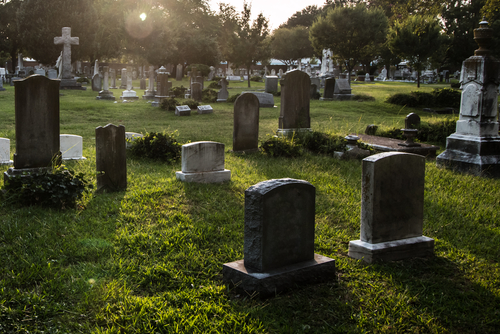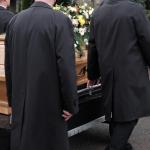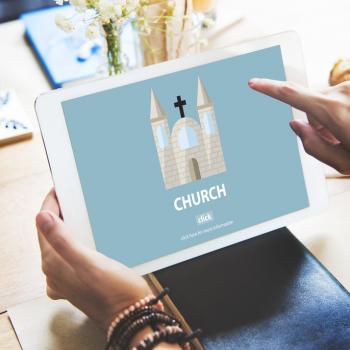
In the past two months, my family lost a generation of matriarchs.
In May, my maternal grandmother, my Nana, died after a short battle with pancreatic cancer. The same week she was diagnosed with the disease, my wife’s grandmother, her last remaining grandparent, received the same diagnosis and prognosis; she died two weeks ago. Last Thursday, my father’s mother was rushed to the hospital after an aneurysm burst. A woman who I had never seen sick — indeed, who I predicted would outlive all my grandparents — died in a hospital that evening, surrounded by her family.
I’ve been blessed throughout most my life to have been spared much tragedy. Up until May, I still had all four of my grandparents. My parents and siblings are all healthy. That’s a gift that few receive, and I confess that it’s something I have taken for granted.
In recent years, I’ve had acquaintances and family friends die, but my immediate family and friends have remained safe. My experiences with death came from funerals of people I wasn’t especially close with or from the odd twinge of seeing a friend’s name on Facebook who I knew was no longer alive. It also came from movies. And it’s not the same as experiencing it yourself.
We have a tendency to sanitize death, romanticize it, blunt the impact. We don’t say “died,” we say “passed away” or that the person is sleeping. We make sure to let funeral attendees know that our loved ones died peacefully, that in some way this was a blessing or “this is what they wanted” (if we’re truthful, what they probably wanted more was to not die). We dress their bodies up in their finest clothing and do their hair and makeup. In the movies, people die in soft focus with a halo of light around them, still radiant even as they draw their final breaths.
If you’ve been at someone’s deathbed, you know that’s not how it works. Eyes that once sparkled with life are closed or dull. Dignity is taken away by sweat, vomit, blood and medical equipment. Hands that once rubbed your back or held you as you cried are now feeble, the voices that prayed with you now robbed of energy. There’s no dramatic moment when someone breathes their last; they just stop breathing, and a person who you loved is now a cold shell. A deathbed vigil is a holy moment, but it’s not a pretty one. The power is simply in being there.
Twice this summer, I’ve been a pallbearer. That means twice, I’ve had to carry one of the first persons to carry me to their final resting place. That’s a sobering responsibility, and I’ll be honest that it’s been difficult. To see my grandmothers in their final moments has rocked me to my core. To see such energetic, vibrant women in such vulnerable states has broken my heart. To realize that even those who love and serve God with their whole being still wind up in such devastating final moments has shaken me. To realize that we all share the same fate — even though the details of our leaving can change — has troubled me.
And yet, it’s also reaffirmed my faith (atheists who like to chime in the comments about why I’m wrong: maybe sit this round out). It’s reminded me that death is not something to be romanticized or dressed up, seen as a blessing or gift. Death is ugly. It is offensive. It is unnatural. And deep down in our souls, we know it.
It’s why we fight so hard against it, pushing for cures and encouraging wellness. We weep at gravesites because even though we know we will all die, something inside us refuses to believe it’s natural. It’s why death is so ghastly; even when the person in the coffin looks like the person we knew, it still feels off, because it’s not them. What’s them included a spark, an energy, a vitality; it’s the soul that makes a living body a person. To lose that doesn’t just seem unnatural, it feels impossible. There has to be somewhere they went. It’s why I believe even so many atheists believe in ghosts or the non-religious often cling to some idea of spirituality. It’s because deep down, we feel that life isn’t supposed to end with our cold bodies in the ground. It’s as if eternity has been imprinted on our hearts whether our intellect wants to believe it or not (see: Ecclesiastes 3:11).
I think it’s why we have funerals. If death were something natural and to be accepted, we’d make like the animals and just move on. But we can’t do that. We have to mourn what was taken. We have to remember the life that impacted others. And we gather in hope that there is something more to come.
Death is sad. A packed funeral, though, can be a thing of joy. It moved me to see churches and funeral homes packed for both of my grandmothers’ funerals. These weren’t services just for family and a few still-living friends. These were services of celebration where people of all ages came to pay honor. Stories of the impact these women made on others’ lives — many coming from people I’d never met, who shared stories that allowed me to see these women in a new light — were told. There were tears, but there was also laughter. We wept over what was lost but we also celebrated what we we shared. These were not only times of mourning, but services to acknowledge two women who had been models of faith, service, family and joy.
In the book of Hebrews, the author writes about the long line of believers — the “cloud of witnesses” — who surround us, inspiring us to run the race of faith. I have long been humbled to know that my cloud of witnesses comprises my family. There’s a heritage of faith passed down that extends from these matriarchs and their spouses. I am sad they are gone, but I am deeply grateful for their influence, and I hope to see them again.













